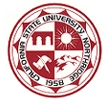California Subject Examination for Teachers - Relevant Domain Subjects and Skills

Content Specifications for the
Subject Matter Requirement for the
Multiple Subject Teaching Credential
Listed below are the subject matter topics and skills that are covered at least in part in this course. They were selected from the California Subject Examination for Teachers website. To see the full test, click on the link below.
http://www.cset.nesinc.com/PDFs/CS_multisubject_SMR.pdf
Domain 3: California History
3.1 The Pre-Columbian Period through the Gold Rush.
- Candidates for Multiple Subject
Teaching Credentials identify the impact of California’s physical geography on its history.
- They
describe the geography, economic activities, folklore and religion of California’s American Indian peoples.
- They discuss the impact of Spanish exploration and colonization, including the
mission system and its influence on the development of the agricultural economy of early
California.
- They describe Mexican rule in California.
- They state the causes of the war between
Mexico and the United States and its consequences for California.
- They describe the discovery of gold and its cultural, social, political and economic effects in California, including its impact on American Indians and Mexican nationals.
3.2 Economic, Political, and Cultural Development Since the 1850’s.
- Candidates for Multiple
Subject Teaching Credentials identify key principles of the California Constitution, including the
Progressive-era reforms of initiative, referendum and recall, and they recognize similarities and
differences between it and the U. S. Constitution.
- They identify patterns of immigration to
California, including the Dust Bowl migration, and discuss their impact on the cultural,
economic, social and political development of the state.
- They identify the effects of federal and
state law on the legal status of immigrants.
- They describe historical and contemporary perspectives on cultural diversity in the United States and in California.
- Candidates understand
the development and identify the locations of California’s major economic activities: mining,
large-scale agriculture, entertainment, recreation, aerospace, electronics and international trade.
- They identify factors leading to the development of California’s water delivery system, and describe its relationship to California geography.
Part II: Subject Matter Skills and Abilities
Applicable to the Content Domains in History and Social Science
Candidates for Multiple Subject Teaching Credentials
- utilize chronological and spatial thinking.
- They
construct and interpret timelines, tables, graphs, maps and charts.
- They locate places based on ordinal
directions, latitude and longitude, the equator, prime meridian, the tropics, the hemispheres, time zones
and the international dateline.
- They identify and interpret major geographical features of the earth’s
surface including continents and other large landmasses, mountain ranges, forested areas, grasslands,
deserts and major bodies of water and rivers.
- They describe the cultural, historical, economic and
political characteristics of world regions, including human features of the regions such as population,
land use patterns and settlement patterns.
- Candidates for Multiple Subject Teaching Credentials analyze, interpret and evaluate research
evidence in history and the social sciences.
- They interpret primary and secondary sources, including
written documents, narratives, photographs, art and artifacts revealed through archeology.
- In relation
to confirmed research evidence they assess textbooks and contrast differing points of view on historic
and current events.
In the interpretation of historical and current events, candidates identify, explain and discuss multiple
causes and effects.
- They recognize the differing ramifications of historical and current events for
people of varying ethnic, racial, socio-economic, cultural and gender backgrounds.
- Candidates draw on and apply concepts from history and other social studies including political
science and government, geography, economics, anthropology, and sociology.
- They explain concepts
related to human, government and political institutions, including power and authority, monarchy,
totalitarianism, republicanism, democracy, limited government and the roles and responsibilities of
citizenship.
- They draw on and apply basic economic concepts. They discuss basic concepts of
sociology related to individuals, interpersonal relationships and institutions, including family and
community; and concepts related to social structure, including occupation, socio-economic class,
ethnicity and gender.
- Candidates explain major concepts of philosophy (including concepts of religion
and other belief systems) and their impact on history and society.
- They explain basic concepts of
demography including factors associated with human migration.
- They discuss basic concepts of
anthropology including the nature and content of culture, and they understand the historical and
cultural development of human society, including hunting and gathering, nomadic pastoralism,
domestication of plants and animals, and the creation and evolution of human settlements and cities.



